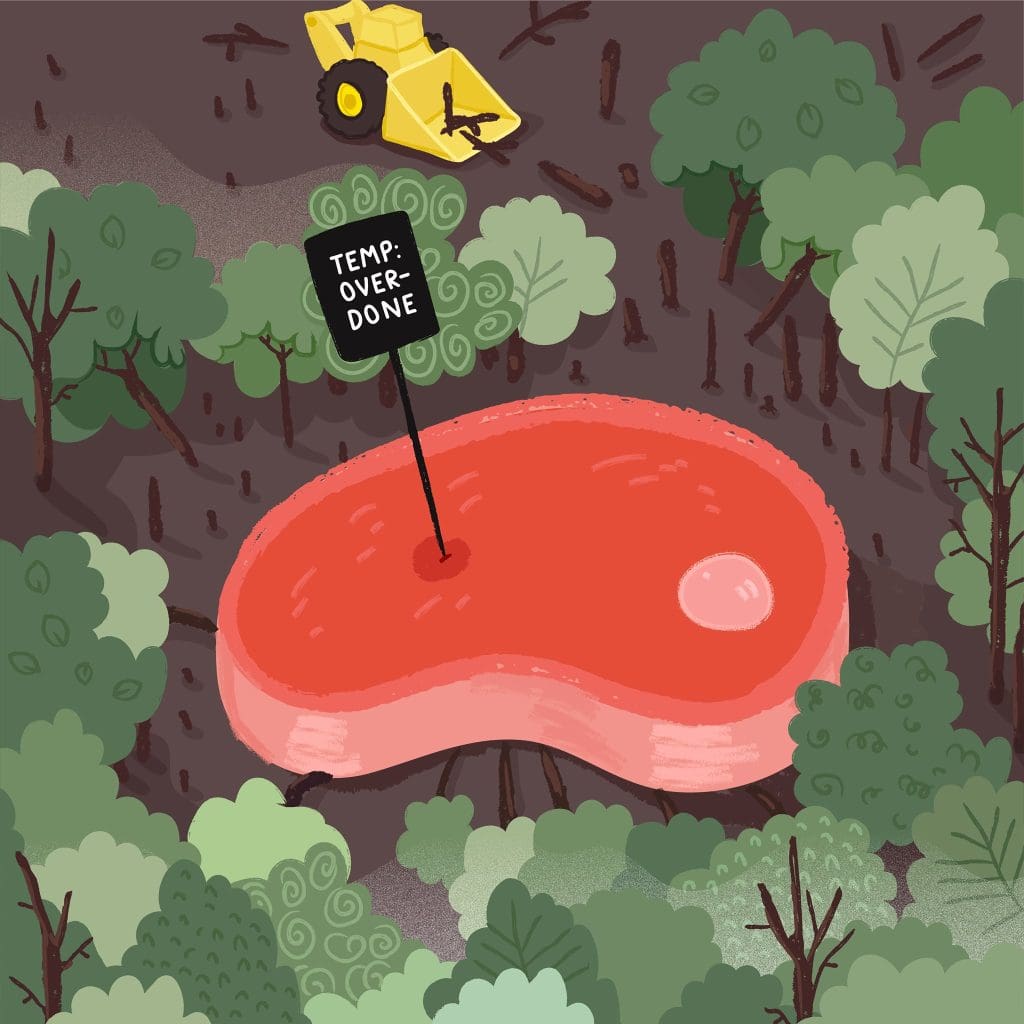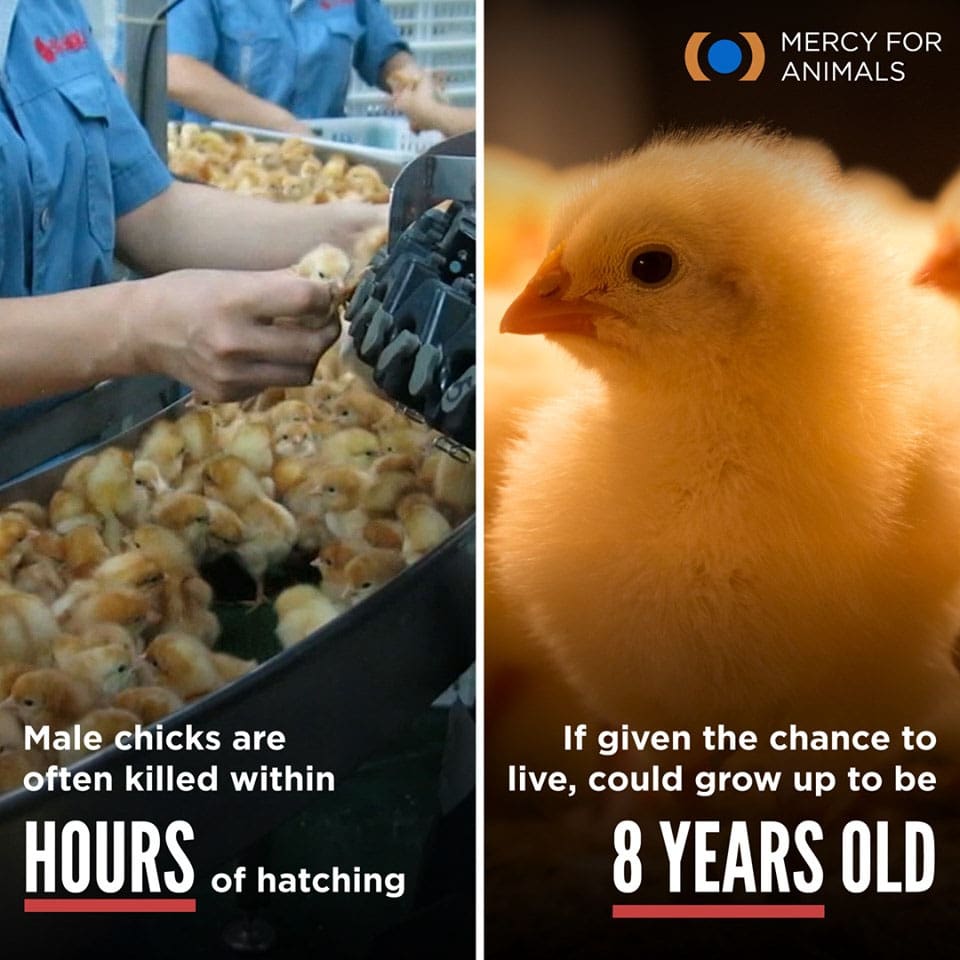In this post, we will delve into the environmental consequences of meat production, the effects of meat consumption on human health, and the hidden dangers of industrial agriculture. We will also explore the link between meat consumption and climate change, sustainable alternatives to meat, and the connection between meat and deforestation. Additionally, we will discuss the water footprint of meat production, the role of meat in contributing to antibiotic resistance, and the intersection of meat consumption and animal welfare. Lastly, we will touch on the health risks of processed meat. Join us as we uncover the facts and shed light on this important topic.

The Environmental Impact of Meat Production
Meat production has a significant impact on the environment, affecting both natural habitats and contributing to climate change.
Meat production contributes to deforestation and habitat loss
The expansion of livestock agriculture often leads to the clearing of forests to make way for grazing and feed crop production. This deforestation not only disrupts ecosystems but also contributes to the loss of biodiversity.
Livestock agriculture is a major source of greenhouse gas emissions
The rearing of livestock, especially cattle, emits substantial amounts of greenhouse gases such as methane and nitrous oxide. These gases are known to contribute to global warming and climate change.
Meat production requires extensive water usage
The production of meat requires substantial amounts of water, from raising animals to processing and transportation. This high water demand puts pressure on freshwater resources and contributes to water scarcity and depletion.

How Meat Consumption Affects Human Health
High consumption of red and processed meats is linked to increased risk of heart disease and certain cancers. Meat contains saturated fats and cholesterol, which can contribute to cardiovascular problems. The excessive use of antibiotics in meat production contributes to antibiotic resistance in humans.
- Increased Risk of Heart Disease and Certain Cancers: Studies have found that individuals who consume high amounts of red and processed meats have a higher risk of developing heart disease and certain types of cancer, such as colorectal cancer.
- Saturated Fats and Cholesterol: Meat, especially red meat, is often high in saturated fats and cholesterol. These substances can raise blood cholesterol levels and contribute to the development of cardiovascular problems.
- Antibiotic Resistance: Antibiotics are commonly used in meat production to promote animal growth and prevent disease outbreaks. However, the overuse and misuse of antibiotics in animal agriculture contribute to the development of antibiotic-resistant bacteria. When humans consume meat from animals treated with antibiotics, they can be exposed to these bacteria and increase the spread of antibiotic resistance.
The Hidden Dangers of Industrial Agriculture
Industrial agriculture often relies on harmful pesticides and fertilizers that harm ecosystems and human health. These chemicals can contaminate soil, water sources, and air, leading to negative impacts on biodiversity and overall ecosystem health. Additionally, exposure to these chemicals can have adverse effects on human health, including respiratory issues, allergies, and even certain types of cancer.
Factory farming practices in industrial agriculture also contribute to various dangers. Animals raised in overcrowded and unsanitary conditions are more susceptible to diseases, which can spread rapidly within these confined spaces. This not only poses risks to animal welfare but also increases the likelihood of disease transmission to humans.
Furthermore, industrial agriculture has a detrimental effect on soil health. The excessive use of synthetic fertilizers depletes soil nutrients and disrupts the natural balance of ecosystems. This leads to soil degradation, erosion, and decreased long-term productivity of agricultural land. It also contributes to water pollution and runoff, negatively impacting aquatic ecosystems.
To mitigate these hidden dangers, sustainable farming practices, such as organic farming and regenerative agriculture, promote healthier ecosystems, reduce the use of harmful chemicals, and prioritize animal welfare. These alternative practices prioritize soil health and biodiversity while minimizing negative impacts on the environment and human health.
The Link Between Meat Consumption and Climate Change
Meat production is a significant contributor to greenhouse gas emissions, including methane and nitrous oxide. These gases have a much higher warming potential than carbon dioxide, making the meat industry a major contributor to climate change.
Deforestation for livestock farming also releases carbon dioxide into the atmosphere. In regions like the Amazon rainforest, large areas of land are cleared to make way for livestock production, further exacerbating climate change.
By reducing meat consumption, individuals can help mitigate climate change and reduce their carbon footprints. Transitioning to a plant-based diet or opting for more sustainable protein sources can significantly reduce the environmental impact associated with meat production.
Sustainable Alternatives to Meat
Plant-based diets offer a sustainable alternative to meat consumption, reducing environmental impact and promoting better health. By choosing a plant-based diet, individuals can lower their carbon footprint and contribute to a more sustainable future.
There are various alternative protein sources that can provide necessary nutrients while minimizing environmental damage. Legumes, such as beans, lentils, and chickpeas, are rich in protein and can be a staple in plant-based diets. Tofu and tempeh are soy-based products that can serve as meat substitutes and provide essential amino acids.
In recent years, plant-based meats and cultivated meats have emerged as viable alternatives to traditional meat products. These products are made from plant-based ingredients or grown directly from animal cells in a lab, reducing the need for animal agriculture and its associated environmental impact.
By embracing sustainable alternatives to meat, individuals can make a positive impact on their health and the planet.
The Connection Between Meat and Deforestation
Livestock farming is a leading cause of deforestation, particularly in regions like the Amazon rainforest. The demand for land to raise cattle and grow animal feed has resulted in widespread forest clearing, contributing to habitat loss and biodiversity decline.

The clearing of land for livestock production not only destroys trees but also disrupts ecosystems, leading to the displacement of indigenous communities and the loss of endangered species.
Reducing meat consumption can play a crucial role in preserving forests and protecting the environment. By choosing alternative protein sources and adopting plant-based diets, individuals can contribute to the conservation efforts and mitigate the harmful effects of deforestation caused by livestock farming.
The Water Footprint of Meat Production
Raising livestock for meat requires significant amounts of water, contributing to water scarcity and depletion. The water footprint of meat is much higher compared to plant-based alternatives.
Meat production is water-intensive throughout its entire lifecycle. Water is needed to grow animal feed crops, provide drinking water for the animals, and for cleaning and processing in slaughterhouses and meat processing facilities.
According to studies, it takes an average of 15,415 liters of water to produce 1 kilogram of beef, while the water footprint for 1 kilogram of legumes is only 50-250 liters. This stark difference in water usage highlights the inefficiency of meat production in terms of resource utilization.
Furthermore, the water pollution caused by animal waste from livestock farming poses a significant threat to water quality. The runoff containing manure and other contaminants can contaminate local water sources, leading to harmful effects on ecosystems and human health.
Reducing meat consumption can help conserve water resources and promote water sustainability. By shifting to plant-based diets or consuming alternative protein sources, individuals can contribute to reducing their water footprint and mitigating the negative impact of meat production on the world’s water resources.

The Role of Meat in Contributing to Antibiotic Resistance
The misuse and overuse of antibiotics in animal agriculture contributes to the development of antibiotic-resistant bacteria. This is a significant concern for public health.
Consuming meat from animals treated with antibiotics can lead to the spread of antibiotic resistance to humans. This occurs when bacteria in the meat, or on our hands or surfaces contaminated by the meat, transfer their resistance genes to bacteria that can cause infections in humans.
Reducing meat consumption can play a crucial role in combatting antibiotic resistance and protecting public health. By decreasing the demand for meat, we can reduce the need for antibiotic use in animal agriculture, ultimately helping to preserve the effectiveness of these important drugs for human use.
The Intersection of Meat Consumption and Animal Welfare
Factory farming practices often involve inhumane conditions and cruel treatment of animals. The demand for meat contributes to the perpetuation of intensive animal farming systems. Choosing ethically sourced and humanely raised meat can help address animal welfare concerns.

Understanding the Health Risks of Processed Meat
Processed meats like bacon, sausages, and deli meats are associated with an increased risk of cancer. Multiple studies have shown a clear link between the consumption of processed meats and the development of certain types of cancer, such as colorectal cancer.
One reason for this increased risk is the presence of carcinogenic compounds in processed meats. During the processing and preservation methods, these meats are often treated with nitrates and nitrites, which can react with amines in the meat to form potentially cancer-causing substances called nitrosamines.
Furthermore, processed meats typically contain high levels of salt, unhealthy fats, and other additives that can have negative health effects. Excessive sodium intake can contribute to high blood pressure and an increased risk of cardiovascular disease.
Limiting the consumption of processed meats can reduce the risk of certain diseases and promote better health. Opt for fresh, unprocessed meats or consider plant-based alternatives as part of a balanced diet to minimize your exposure to the health risks associated with processed meats.
Conclusion
Based on the environmental and health impacts discussed in this blog post, it is clear that meat consumption is detrimental to both our planet and our well-being. The production of meat contributes to deforestation, greenhouse gas emissions, and excessive water usage. Additionally, high consumption of meat is linked to increased risk of heart disease, certain cancers, and antibiotic resistance.
Industrial agriculture, which is often associated with meat production, also poses hidden dangers such as the use of harmful pesticides and fertilizers, overcrowded and unsanitary conditions for animals, and soil degradation.
Furthermore, the connection between meat consumption and climate change cannot be ignored. Meat production is a significant contributor to greenhouse gas emissions, deforestation, and carbon dioxide release.
However, there are sustainable alternatives to meat consumption that can help alleviate these issues. Plant-based diets, alternative protein sources like legumes and tofu, and emerging options like plant-based meats and cultivated meats offer environmentally friendly choices that promote better health.
Reducing meat consumption not only helps mitigate climate change, but it also conserves water resources, combats antibiotic resistance, and addresses animal welfare concerns associated with factory farming practices.
In conclusion, choosing to reduce our meat consumption and explore alternative options is not only beneficial for our own health, but also for the health of our planet and the well-being of animals.
4.3/5 - (39 votes)



